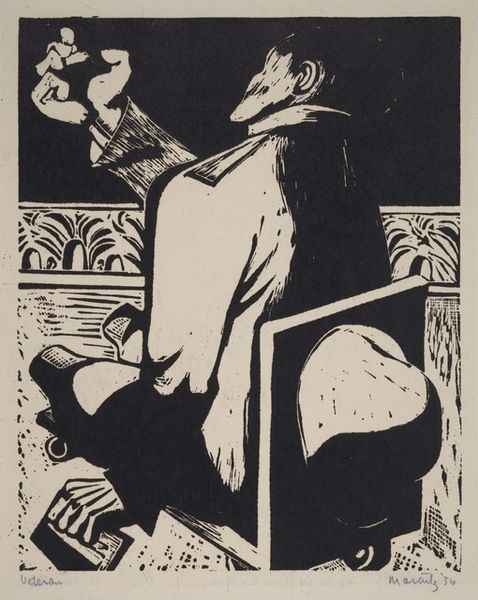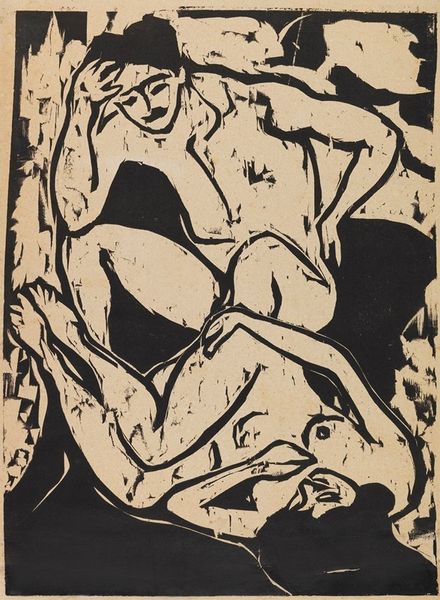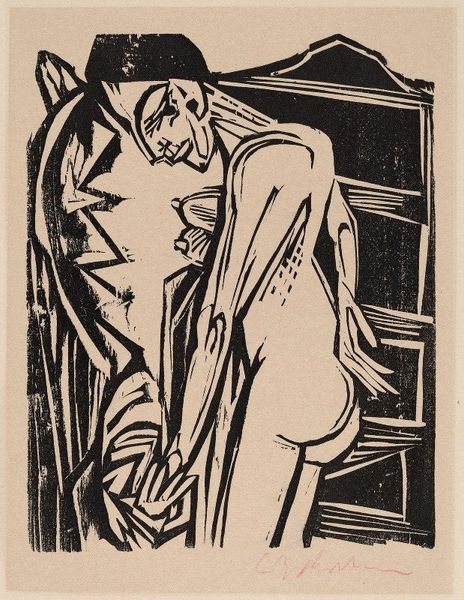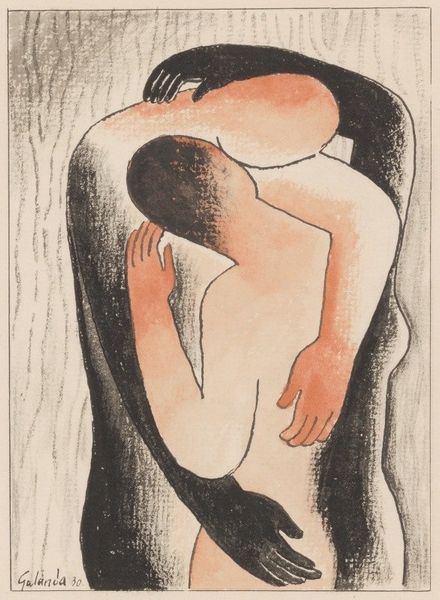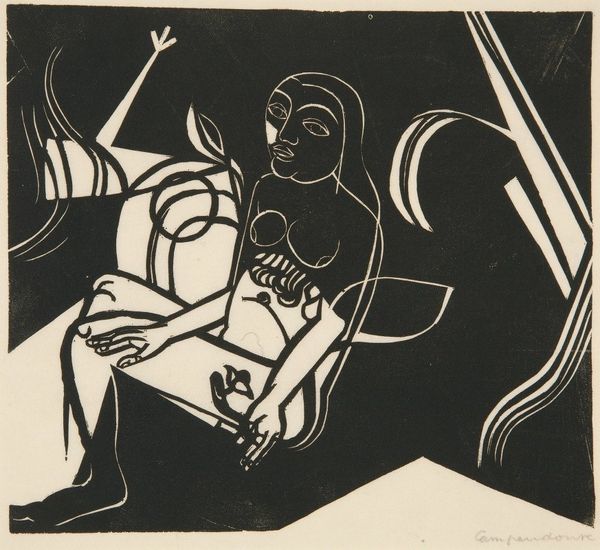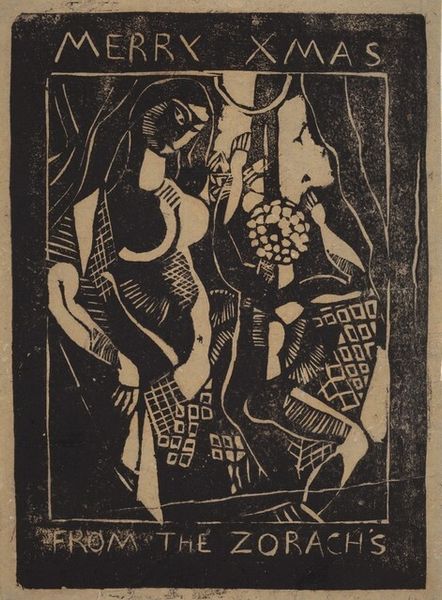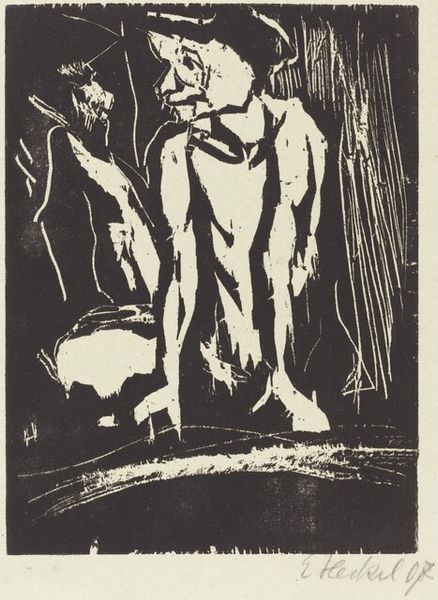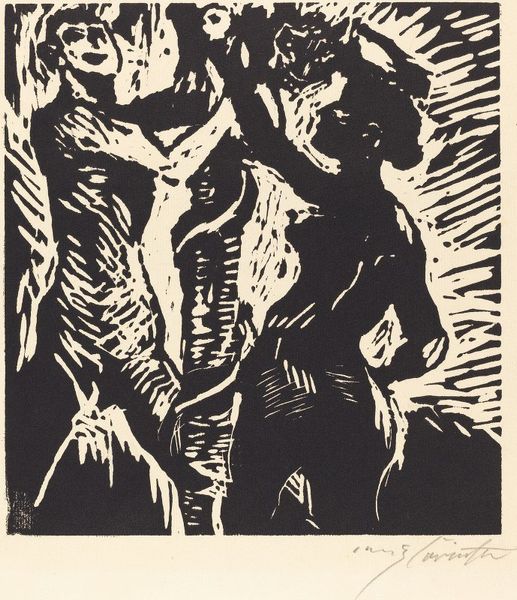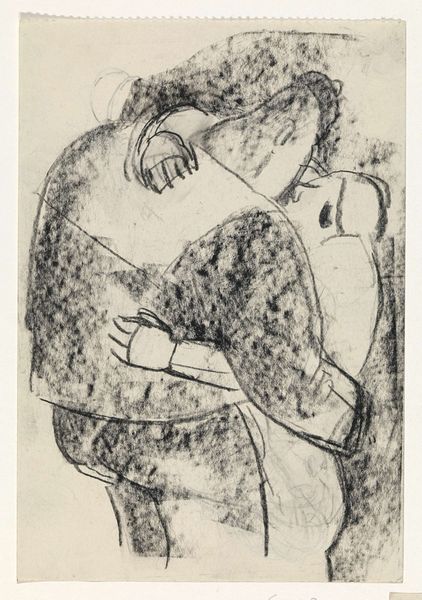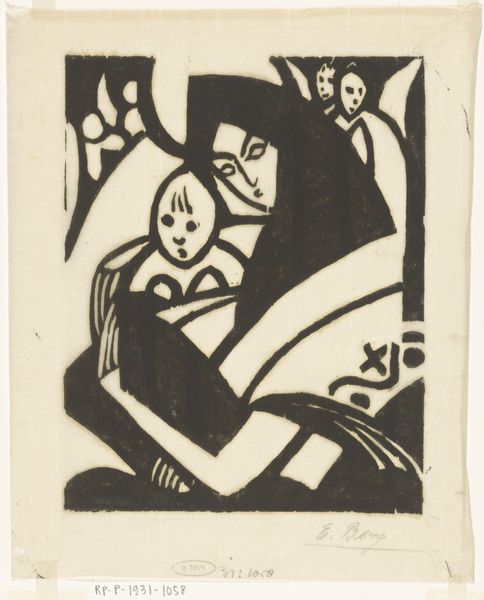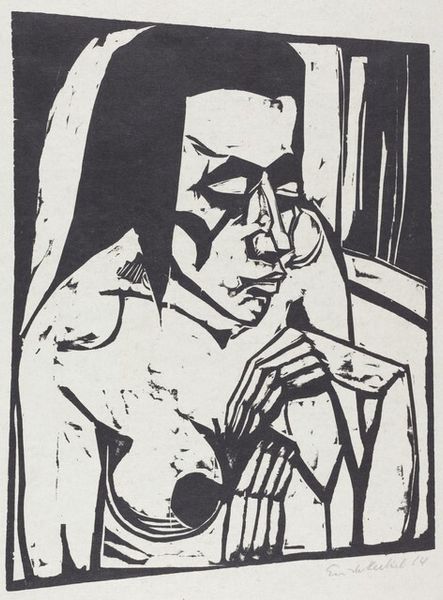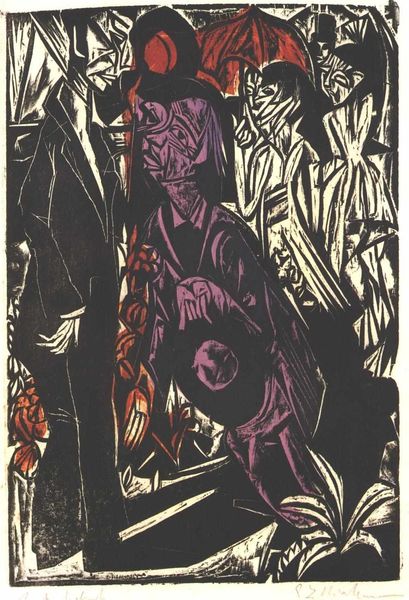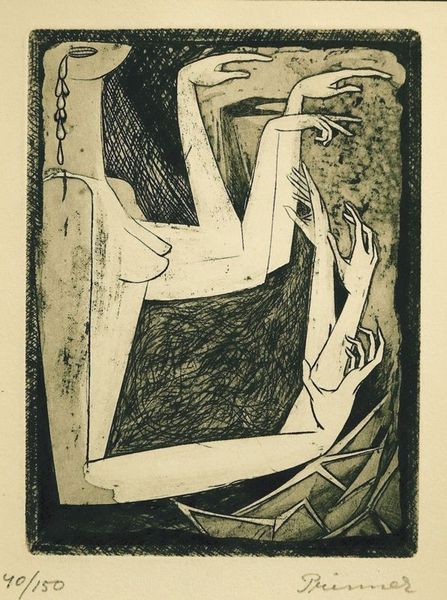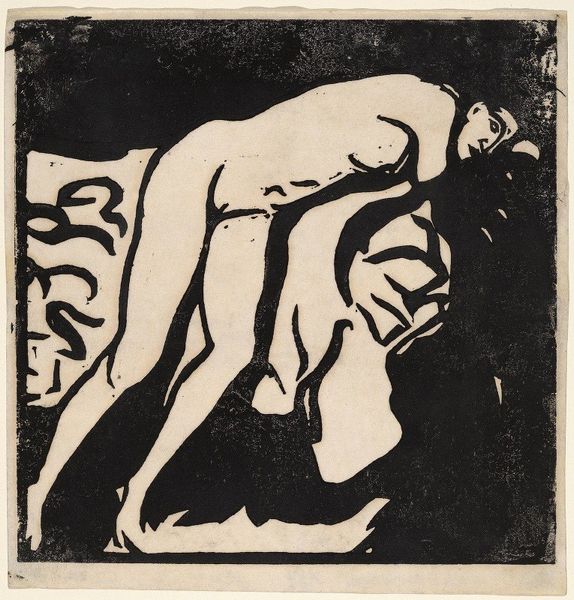
print, woodcut
#
portrait
#
narrative-art
# print
#
caricature
#
german-expressionism
#
figuration
#
group-portraits
#
expressionism
#
woodcut
Dimensions: image: 42.2 × 30.7 cm (16 5/8 × 12 1/16 in.) sheet: 61 × 50.8 cm (24 × 20 in.)
Copyright: National Gallery of Art: CC0 1.0
Curator: Standing before us is Erich Heckel's compelling 1913 woodcut, "Brother and Sister", or "Geschwister" in German. What strikes you immediately? Editor: It’s a striking work, visually unsettling. The stark contrasts and jagged lines give it an air of unease, almost… angular sadness? It's a world of harsh geometries trying to evoke empathy. Curator: That sense of unease is classic Expressionism, isn't it? Heckel, a founder of the Die Brücke group, used woodcut’s inherent roughness to amplify emotional intensity. Notice how the composition divides space. What does it say to you? Editor: The division… it's complex. At first, the composition seemed claustrophobic, like the figures are boxed in by the background of shattered windows or abstracted urban chaos. Their heads seem to melt and reform between each other with disturbing clarity. But on deeper inspection, you can follow distinct directional lines and notice visual harmony as well. Do you notice any sense of underlying calm and peace in that? Curator: Perhaps a stoic resignation, definitely. Heckel’s handling of form here verges on caricature. Note how the faces, with their oversized eyes and sharp features, convey vulnerability and tension—a kind of exposed nerve. It lacks that comfort that intimacy is supposed to instill. Is it a success? Editor: I find the relationship fascinating. The brother's protective arm around the sister speaks volumes, doesn't it? In terms of its effectiveness…it makes me question whether true unity can emerge from discord, whether vulnerability is a gateway to some deeper bond. And I keep wondering, are they embracing, or trying to keep the world out? Curator: A woodcut offers only black and white, pure contrast. A world devoid of gentle tonal transitions. No softening filters, so to speak. Perhaps in Heckel’s hands it functions almost as a brutally honest snapshot of human relationships, stripped bare? Editor: That’s a fascinating angle, and the rawness absolutely accentuates its emotional punch, even if that punch leaves you with a bruise. I guess that is the point, and you and I may now carry some of that punch ourselves.
Comments
No comments
Be the first to comment and join the conversation on the ultimate creative platform.
